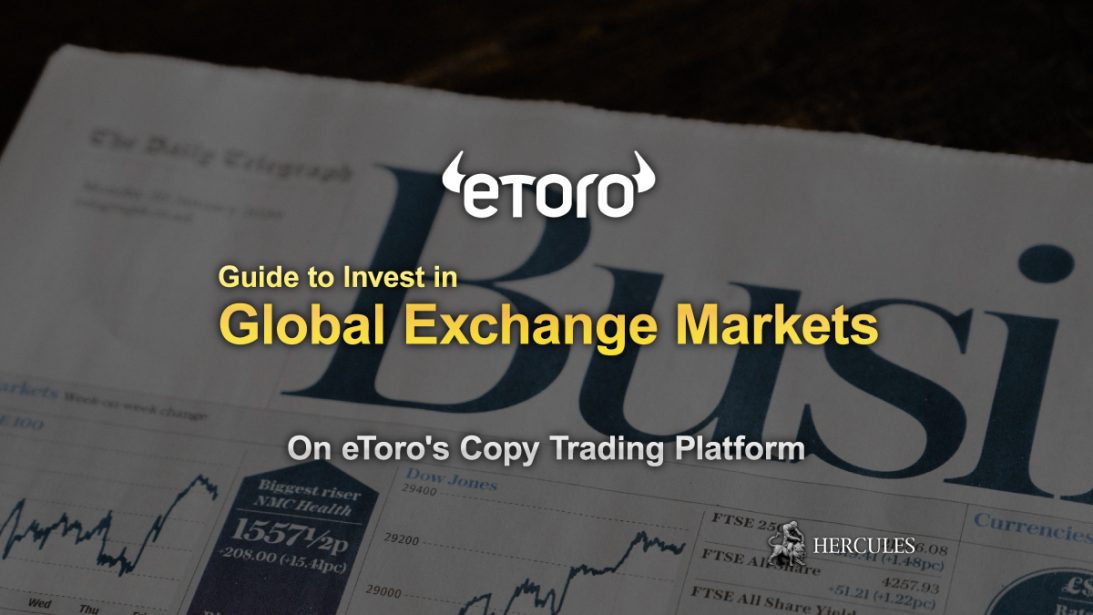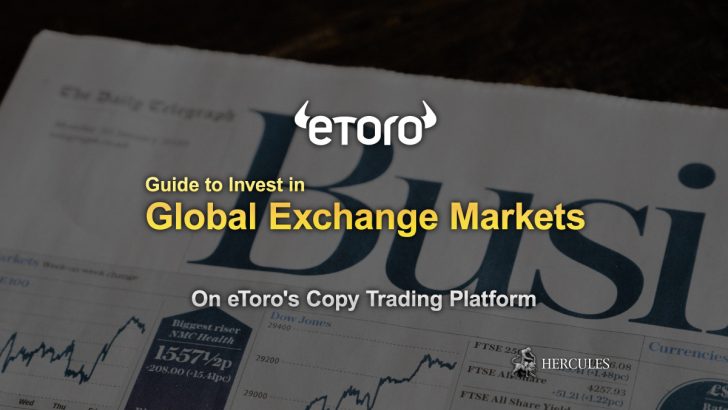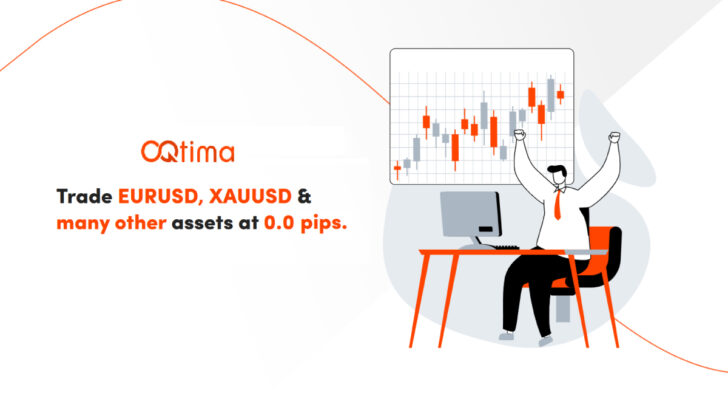Categories
Guide to Invest in Stocks (Shares) on eToro's Copy Trading Platform
Learn essential stock market fundamentals, key players, financial instruments, and risk management strategies for successful investing.


Table of Contents
- What you need to know before investing in the Stock Markets
- What is the Function of a Stock Market?
- The figures of the financial world
- How does a Stock Exchange work?
- Type of Financial Markets
- Popular financial market risks and mistakes
- Define your investor profile
- How to choose a broker suitable for your strategy?
- How to find out about the stock market news?
- Tips to get off to a good start in the Stock Market
Investing in the stock market requires a strong understanding of its fundamentals, including the role of exchanges, key market players, and risk factors. The stock market enables companies to raise capital by issuing shares and provides individuals with investment opportunities. Major actors include issuers, investors, intermediaries, regulators, central institutions, and rating agencies. Understanding financial instruments like stocks, bonds, ETFs, and commodities is essential for making informed investment decisions. Risk management strategies, diversification, and selecting the right broker are crucial for long-term success in stock market trading.
| Feature | Details |
|---|---|
| Stock Market Purpose | Allows companies to raise capital and individuals to invest |
| Key Market Players | Issuers, investors, intermediaries, regulators, central institutions, rating agencies |
| Financial Instruments | Stocks, bonds, ETFs, commodities, forex, indices, CFDs, futures |
| Risk Factors | Market volatility, currency risk, interest rates, commodity fluctuations |
| Risk Management | Diversification, stop-loss orders, informed decision-making |
| Broker Selection | Choose regulated brokers with suitable trading conditions |
What you need to know before investing in the Stock Markets
Are you wondering what the Stock Market is and want to know what is the key information to know before investing your money in the financial markets?
You are in the perfect place!
In this guide, we are going to mention the foundations of the Stock Market, its main players, and the mistakes to avoid when we decide to consolidate our savings.
In a financial and economic sense, the Stock Market is the place that allows the price of assets to be presented at a given time.
It facilitates and ensures exchanges by bringing together all the actors (buyers/sellers) who carry out financial operations with transferable securities (shares, bonds, etc.).
There are different Stock Exchanges.
Therefore, each country has its own financial market and in most cases, its rules and schedules change from one stock exchange to another, although those belonging to the same geographical area, for example, continental Europe, tend to harmonize their trading hours.
What is the Function of a Stock Market?
To get down to business, let’s quickly recall the role of the Stock Market and what exactly it is for.
The Stock Market allows companies to finance themselves by obtaining capital through the issuance of shares (property titles).
It also allows individuals to invest in the real economy and share in the success of their favorite brands.
Generally, the issuance of obligations (credit titles) is not usually defined as the Stock Market, but as fixed income or capital markets, a meaning that would also encompass shares.
Therefore, the main utility of the Stock Exchange is to allow companies to raise capital with the aim of being able to prosper in the long term.
It is an excellent economic engine since it allows all individuals to make savings.
Therefore, it plays a determining role in financing today’s economy.
Get access to global exchanges through eToro
The figures of the financial world
In order to ensure the correct development of the different Stock Exchanges, there are six main types of actors.
1. Issuers
The first type of actor is made up of companies that decide to list and, therefore, issue part of their capital in the financial markets.
Usually, the company will resort to an investment bank to carry out this type of operation and achieve a listing on the Stock Market in accordance with the jurisdiction, which is very complex for this type of operation.
2. Investors
Therefore, obviously, the second type of actor to operate is the investors who are going to buy the securities issued by the different companies.
In financial markets, we generally distinguish between individual and institutional investors.
3. Intermediaries
In addition to issuers and investors, we have all the intermediaries that usually act as a gateway between you and the stock markets.
Therefore, in this category, we find brokers, as well as eToro, management companies, or banks that will play the role of intermediary.
Independent supervisory public authorities (for example the CNMV for Spain)
In order to ensure the professionalism of all actors and to guarantee the proper functioning of operations, each country / Stock Exchange has one or more public authorities.
For example, in Spain, we can cite, among others, the CNMV (the equivalent of the SEC in the United States) whose objective is to inform individuals, protect their savings invested in financial instruments and ensure the proper functioning of the financial instrument markets.
4. Central institutions
In addition to the regulators, some institutions such as central banks will ensure monetary policies and others, such as the clearinghouse or the central depositary that will ensure the correct development of operations in addition to the regulator, who will have established the rules previously.
5. Rating agencies
The last major players in the markets are rating agencies such as Moody’s, Fitch Ratings or even Standard & Poors.
A rating agency is an institution that assesses the risk of default on a debt or loan from a State, a company or a local community.
These ratings followed by different players play a key role in financial markets and a rating change always has consequences.
Learn more about financial markets on eToro
How does a Stock Exchange work?
After having seen who are the different actors that operate in the markets and explained the role of each one, let’s now find out what happens when you decide to place an order on the Stock Market.
To carry out an operation in the financial markets, you will need an intermediary such as a bank or a broker who will allow you to directly place your stock orders.
Once you have placed an order, it will be sent directly to the market in question, NYSE-Euronext for example.
Once your broker has sent the order, a clearinghouse such as LCH Clearnet or Clearstream will ensure the correct development of the stocks and will guarantee it in case of default by an actor (buyer, seller, broker ).
Finally, a central depository like Euroclear, for example, will verify that the buyer has correctly received their securities and the seller their payment.
Obviously, all these stages are carried out under the supervision of a stock market watchdog who ensures that they are complied with.
In the event of an incident, it may also act as a mediator between the different actors.
Open eToro’s CFD Trading Account for free
Type of Financial Markets
Therefore, there are different Exchanges for each location, but you can also invest in different types of financial products.
Now let’s see what are the different financial assets with which you can trade:
1. Currencies
You can trade most currencies against each other. This is what we call the Forex or exchange market in Spanish.
It is one of the most important markets. For example, in 2016 the average daily transaction volume was about the US $ 5.1 billion
2. Shares
Another of the financial instruments highly valued by individuals stocks.
A share is a property title that represents a share of the company and will allow you to receive a part of the profits of the company if you distribute dividends.
3. UCITS / ETFs
If you do not want to buy a share or an obligation due to lack of time or knowledge, you can invest directly in an investment fund called Undertaking for Collective Investment in Transferable Securities ( UCITS ), the equivalent of ETFs in the American system, allowing you to invest in specific industries, a specific asset, a particular country, or just a different strategy.
Therefore, at eToro, you can invest in the main ETFs such as TLT, VXX, SPY …
4. Commodities
Commodities can be traded on certain markets such as the NYMEX and the COMEX belonging to the CME Group.
Raw materials can be divided into four categories:
- Agriculture (wheat, soy, rice, etc.)
- Metals (gold, silver, copper, etc.)
- Energy (oil, natural gas, etc.)
- Livestock and meat
Invest in Commodities with eToro
5. Indices
A stock index is a group of stocks used to value a sector, a Stock Market, or an economy.
In general, a stock index is made up of different assets grouped according to very precise criteria (market capitalization, activity sector, country, etc.).
Each Stock Exchange/country also has one or more indices in order to measure the efficiency and financial health of a local market.
Therefore, each Exchange has different indices; You can invest in them thanks to different types of financial contracts: either CFDs or futures.
Invest in Stock Indices with eToro
6. CFDs
A CFD or contract for difference in Spanish is a contract entered into between the broker and his client that stipulates that the buyer will collect or disburse the difference between the asset’s price on its sale date and its price on the contract’s execution date.
This type of product allows the short sale of shares, the use of leverage effects or the ownership of fractions of shares.
In addition to the aforementioned advantages, a CFD also allows you to choose predefined orders such as Stop Loss or Take Profit.
Stop Loss is an automated and pre-programmed stock order that will allow you to stop your losses and exit your position at a chosen price. As for Take Profit, it will allow you to stop your business when the price reaches its intended target.
7. Futures
While at eToro, the broker only uses CFDs, commodities and indices can also be traded on an organized market in the form of a futures contract (or what we also call a Futures).
A future is another type of agreement between two parties that allows to assure or commit to a price for a certain amount of a given product (underlying) at a future date.
In particular, this type of asset allows certain companies to hedge themselves in the event of an asset rise or fall.
However, this type of product is less adapted to individual investors, especially if you are a novice, since it requires significant minimum capital, has an expiration date, and has less flexibility than CFDs.
8. Bonds
unlike shares, obligations are not a property title, but a debt; that is, debt security of the company or the country that decides to issue them.
When buying a share, you participate in the capital of the company, in the event of an obligation, you lend money to a company in return for a fixed return known in advance (called a coupon).
9. Exotic products
Finally, the last types of financial products that you should know about are exotic products.
They are complex derivative products created by financial institutions for issuers that have specific financing needs.
These products represent a tiny part of derivative products and are reserved for advanced investors.
Then all these products will allow you to constitute your different financial investments through various investment vehicles such as your life insurance, your securities accounts, your PEAs, or others!
Popular financial market risks and mistakes
That’s it, now you are familiar with the different products that you can find in the markets.
But before your eagerness leads you to invest all your savings in an IBEX 35 Put option or a CFD with significant leverage, let’s remember the risks you face in the financial markets and the mistakes to avoid in your early days as an investor.
Volatility: the most important and undoubtedly the best-known risk is volatility.
Although a stock may seem very profitable over a period of time, you should always avoid investing all your capital in the same company or the same asset.
To measure the volatility of a financial asset, you can calculate the standard difference yourself or study the Beta coefficient of a stock.
The Beta coefficient is a measure that represents the timing of the volatility of the price of an asset (for example, the stock price of a stock) over the volatility of general market prices (for example, a significant stock index).
Understanding and controlling volatility will allow you not to get carried away by your emotions and have the keys to implement a risk management strategy.
- Currency risk
- the other risk to consider before investing and that investors often forget is currency risk. So, in addition to the profitability of the assets you buy, you also have to look at the price differences. If, for example, you buy a US share, you will own shares in dollars and, therefore, you will be exposed to this currency.
- Commodity risk
- in addition to currency and volatility risk, you must also take into account commodity risk depending on the type of company in which you invest. For example, oil companies such as Total, Exxon, or Petrobras will be greatly impacted by oil prices and OPEC decisions.
- Interest rate risk
- if you trade certain products such as bonds, you will also have to look at monetary policies and interest rate changes by central banks, which will have an impact on the price of certain assets such as bonds.
- Trading Risk
- In addition to these four main risks, you will sometimes have to worry about certain market operations. Whether it is a stock without much liquidity, a defaulting counterparty, or a dishonest broker, you must be aware of the different factors to take into account and not take the Stock Exchange as if it were a casino.
Repeat that each euro invested is better in your pocket than in that of your broker/bank employee; Thus, try to adopt the correct practices (diversify, follow the trend, circulate your profits…) as soon as possible and be patient.
Invest in CFD markets on eToro
Define your investor profile
Now that you know the basics of the Stock Market, the players and the main risks you will face, one of the last things to do before investing is to take some time to reflect on your investor profile, your love of risk, your personal goals and the time horizon in which you want to invest.
You should see the financial markets as a means of saving a portion of your income with the goal of reaching some of your personal goals.
Obviously, each person is different and, consequently, no one will invest in the same way.
Therefore, before launching, you should also think a lot about the risk you want to take and why you want to invest: earn a secondary income, increase your capital in order to buy a home, prepare for the future of your children …
We advise you never to invest an amount that would have an impact on your personal life and to set achievable goals.
If you hate risk, we recommend low-risk products such as bonds, stocks with high capitalization, or diversified and low-volatile ETFs.
On the contrary, if you have a riskier investor profile, in this case, you will probably be interested in cryptocurrencies, tech company stocks, or other exotic products.
How to choose a broker suitable for your strategy?
Once you have defined your investor profile and the strategy/allocation you want to adopt, it is time to ask yourself questions about your broker.
Indeed, as we have seen above, in order to access the financial markets, you must choose a broker that works as a gateway between you and the financial markets.
There are hundreds of players in this industry, and unfortunately, not all of them are honest, so choose your broker carefully.
Always check the AMF blacklist if you have doubts about the professionalism of a broker.
Once you have ensured the professionalism of the chosen broker, you will have to take an interest in the expenses, the trading conditions, the different assets and the interface proposed by the platform and make sure that these criteria correspond to your expectations.
eToro’s platform is especially interesting for long-term investors who want to share their experience with other members and fully enjoy the copy / social trading functionalities.
There will also be nothing to stop you from using different brokers based on your own needs.
How to find out about the stock market news?
Once you have found the broker (s) that best match your expectations, you can create your own portfolio:
Thanks to the Internet and the democratization of this sector, it has never been easier to keep up to date with the latest developments in the financial markets.
Below you will find a non-exhaustive list of financial resources to keep you informed:
- Bloomberg/Morningstar/Reuters
- These three pages are the resources most used by banking employees and institutional investors. In addition to keeping us up to date, these pages allow you to find more information about an asset by simply looking for its Ticker or its ISIN code.
- Specialized press (ZeroHedge, Seeking Alpha, Financial Times, Investing …)
- In addition to these three main pages there are thousands of resources that deal with economic and financial news. While some resources such as the Financial Times or Yahoo Finance are well known, there are also some more specific blogs or others more localized depending on the country. For example, for Spain we can cite media, Cinco Días or even Funds People, which will allow you to stay informed of local news.
- Investor Relations of companies
- if you want to have direct access to the results of a particular company, you can also directly visit the Investor Relations section of its website. Indeed, all companies listed on the financial markets are obliged to maintain strict accounting and make it public!
- Twitter and other social networks
- while here the resources mentioned were the classics, in 2020 we also have to add social networks and, in particular, Twitter. Popularized by the president of the United States, Donald Trump, this new form of communication is developing more and more and from now on you can follow the news in real-time. Other networks such as Telegram for cryptocurrencies can also be used to keep up to date with the latest financial news.
- EToro Current Thread or other features of eToro’s platform
- you can also use popular wisdom and stay informed by following the current thread of eToro’s platform. You can also use eToro’s search page that will allow you to find analyst consensus, price targets and other technical indicators:
Tips to get off to a good start in the Stock Market
Given that there are different sources of information and different risks in financial markets, it is important to follow simple tips such as diversification and stay up-to-date with the news that may have an impact on financial markets.
Let’s discover some tips to apply:
- Diversification
- Allows you to reduce risk and invest your funds in multiple companies
- Implement a trading strategy
- Implement a predefined trading strategy in advance in order to limit the emotional and psychological impact of the markets.
- Follow the news
- “Buy the rumor, sell the news” This adage is important and to become a good investor you will need to keep up with the economic and political news that directly influence the markets.
- Use TP and SL
- In addition to having a strategy, you will certainly have to use. Stop Loss or Take Profit in order to limit your risk and the impact of your emotions.
- Save over time
- DCA is a method of saving a small amount on a regular basis (for example, every month). It can be an effective solution to accumulate savings over time and enjoy compound interest.
Even though these tips seem basic, they will allow you to understand the financial markets by minimizing your risk and maximizing your profits!
You are already up to date with the main information to know before investing in the stock market! Now that you are familiar with these concepts, feel free to put them into practice without risk using your eToro virtual account!
FAQs to summarize the article
- What is the stock market?
- The stock market is a platform where companies raise capital and investors trade financial securities.
- Who are the key players in the stock market?
- Issuers, investors, intermediaries, regulators, central institutions, and rating agencies.
- What financial instruments can I invest in?
- You can invest in stocks, bonds, ETFs, commodities, forex, indices, CFDs, and futures.
- What are the main risks of investing in the stock market?
- Risks include market volatility, currency fluctuations, interest rate changes, and economic factors.
- How can I manage risks when investing?
- Use diversification, stop-loss orders, and stay informed about market trends.
- How do stock exchanges function?
- Stock exchanges match buyers and sellers, facilitating transparent and efficient trading.
- What is the role of rating agencies?
- Rating agencies assess the credit risk of companies, governments, and financial instruments.
- Why is selecting the right broker important?
- A good broker ensures secure transactions, fair trading conditions, and compliance with regulations.
- How do I choose the best stocks to invest in?
- Analyze company performance, market trends, and economic indicators before investing.
- What is the importance of diversification?
- Diversification spreads risk across different assets, reducing the impact of market fluctuations.
Latest Features
- Close






